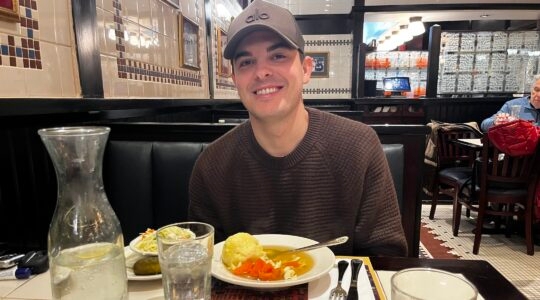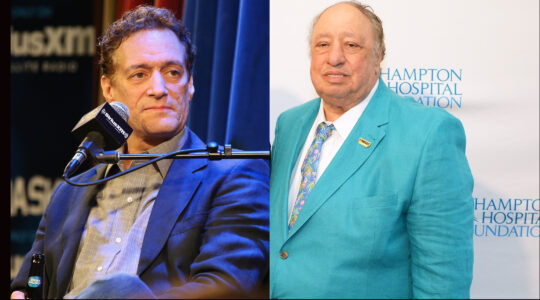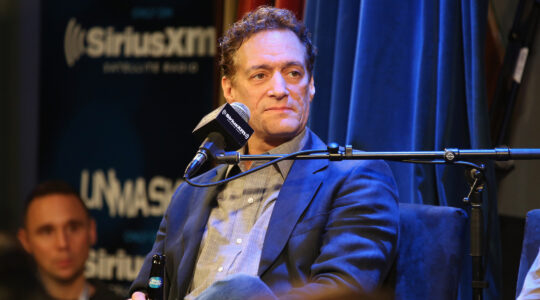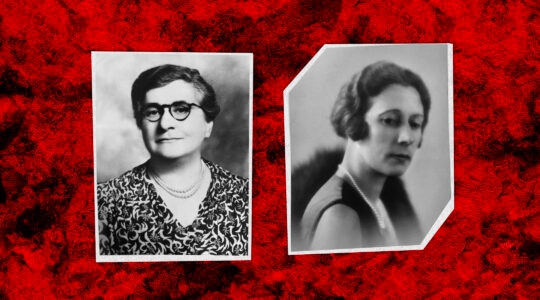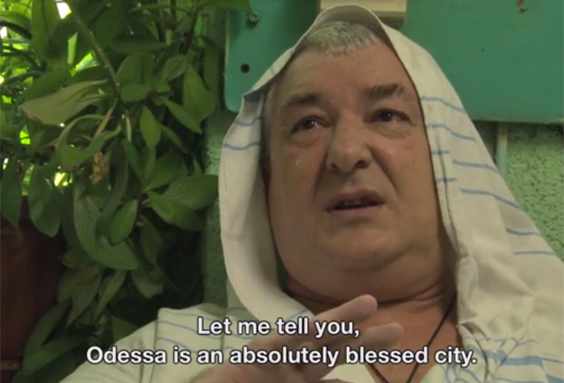
In a chaotic Ukraine, how do Jews see themselves? Dmitry Khavin’s new short documentary Quiet in Odessa (which screens this Friday in NYC) lets a few of the port city’s remaining Jews meditate on what it means to have stayed put while others left for Israel, the U.S. and Europe — to be the ones who plan to stay long enough to “turn out the light and close the door.”

What keeps them there? Khavin’s camera reveals his subjects’ long memories — of oppression under the Soviets, of the city’s storied history — and a fierce loyalty to Odessa, “a free city.” Robust Jewish cultural life is a thing of the distant past, but even scraps of Jewish knowledge still carry currency: in one of the film’s most enjoyable scenes, in a Jewish bathhouse, one man asks another if he remembers any Yiddish. “Not one word,” he replies. “I know how to say kiss my ass, and that’s it!”
The struggle for a free Ukraine seems to unite Odessa’s Jews with their ethnic Ukrainian neighbors, but Khavin’s subjects still cling to the vestiges of a continuous, autonomous Jewish community: “I planned to immigrate,” another older bather tells the camera, “but I couldn’t leave this bathhouse.”
___
» Find upcoming screenings
» Bake matzah at this Ukrainian matzah factory
» Learn about the history of Jews in Odessa
» Consider the more dire situation for Kiev’s Jews
___
Watch the trailer of Quiet in Odessa:
Watch a dazzlingly memorable scene from Khavin’s film Odessa Movies:
JTA has documented Jewish history in real-time for over a century. Keep our journalism strong by joining us in supporting independent, award-winning reporting.



